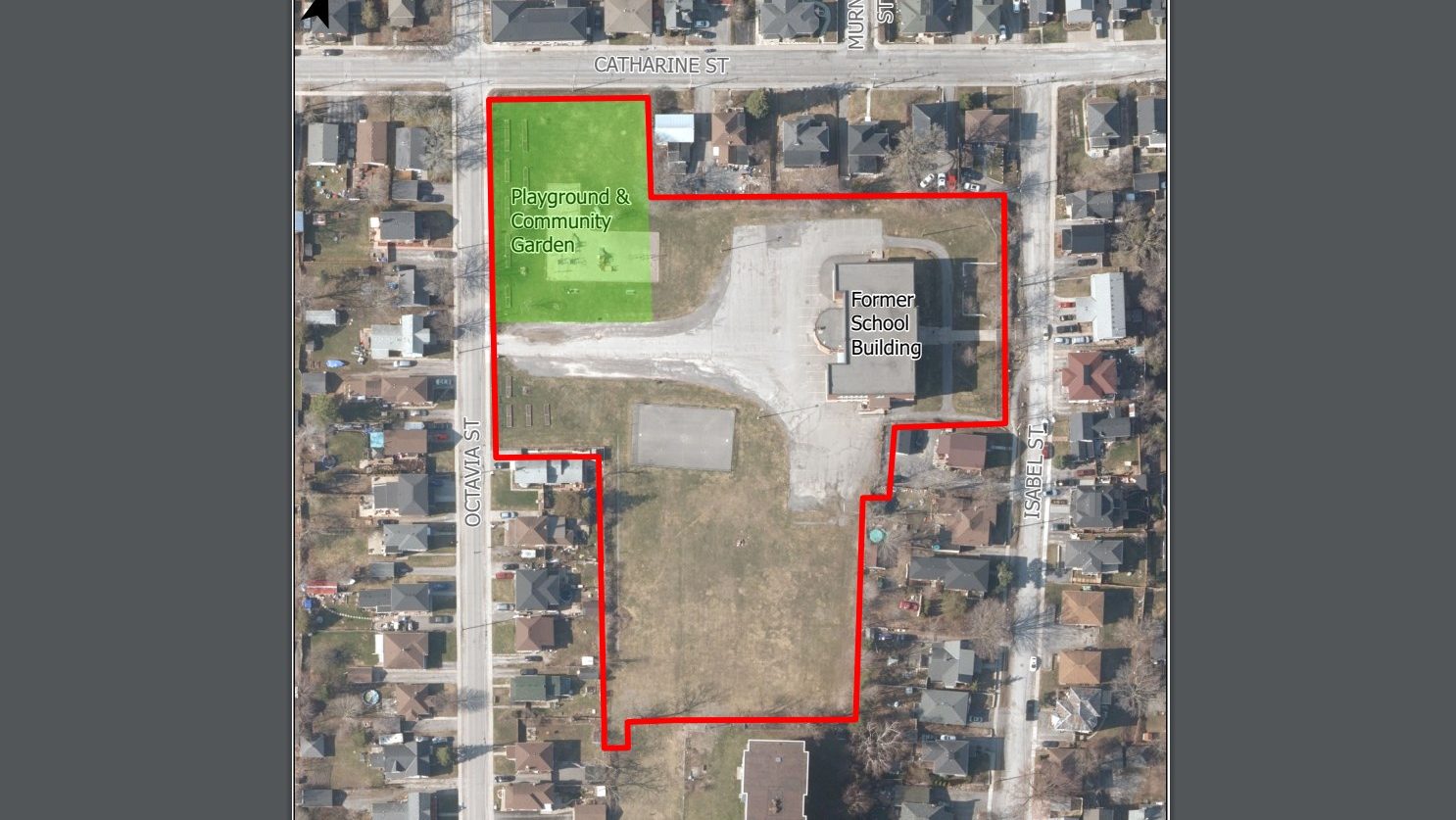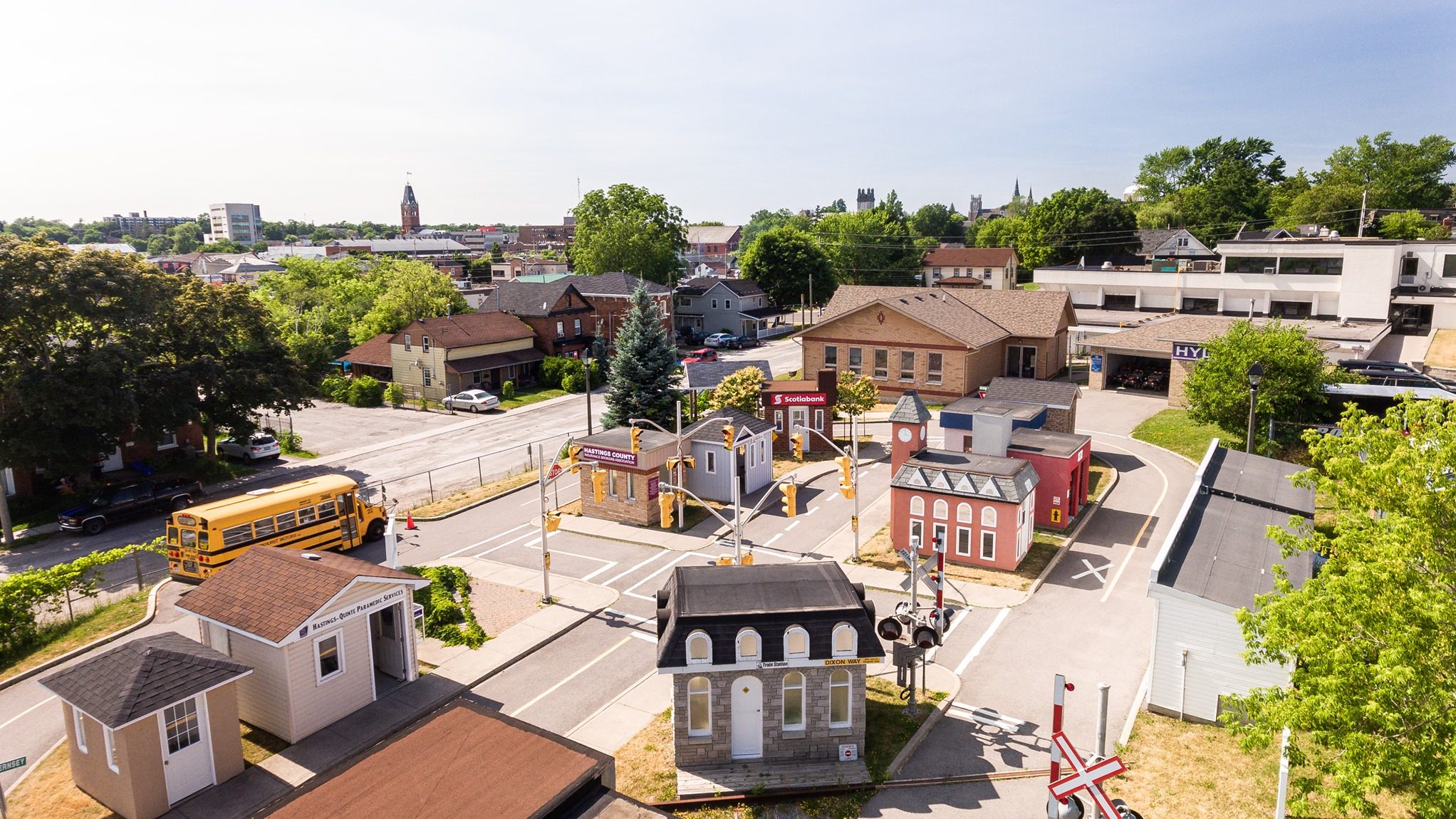On September 9, 2024 Belleville Council agreed in principal pending a public consultation to re-apply to the federal Housing Accelerator Fund for $16.8M to add an estimated 460 additional units over 3 years by allowing 4 unit dwellings on urban residential lots. Belleville’s first application to the Housing Accelerator Fund was denied, likely due to not including the change to allow up to 4 units on a property.
The “Residential Intensification” project would make changes to the Official Plan and Zoning By-law that would increase opportunities for affordable “missing middle” housing options by allowing different forms of development, including four-unit dwellings on urban serviced residential parcels of land.
These housing options could include:
- Accessory Dwelling Units (ADUs)
- Basement suites
- Laneway houses
- Ground-oriented housing options
Permitting 4 units on urban residential properties
Staff have identified three (3) changes to encourage appropriate residential intensification in existing and new urban residential neighbourhoods, and to permit four-unit dwellings on urban residential land parcels in the City (i.e. four-units as-of-right zoning). These changes include:
- Initiative 1: Aligning residential zoning along key road corridors;
- Initiative 2: Expanded permissions for Accessory Dwelling Units (ADU’s), including permitting a third ADU where two ADU’s are already permitted; and
- Initiative 3: Reducing barriers for ground-oriented housing options, including three-unit and four-unit dwellings.
The below table is a general timeline of the milestones of the project:
Take action
Form to provide feedback on these initiatives
Timeline
TBD – City Council
TBD – Recommendation at the Planning Advisory Committee
November 4, 2024 – Public Meeting at the Planning Advisory Committee
5:30PM at City Hall, 169 Front Street
September 26, 2024 – Public information centre at Parkdale Community Centre (119 Birch St.) from 4:30 to 6:30 pm
We have initiated a project to increase opportunities for “missing middle” housing options, including permitting four-unit dwellings on urban serviced properties and we want your feedback. A public information centre will be held on Sept. 26 from 4:30 to 6:30 pm at the Parkdale Community Centre (119 Birch St.) to provide more information and gain feedback.
The public open house will get feedback from individuals who might have some ideas, suggestions, concerns, and that’ll be incorporated into a report back to the planning advisory committee that will consider the application by the city
Director of Engineering and Development Services Stephen Ashton
For more information on this project and to submit feedback online, visit www.belleville.ca/ResIntensification.
Open Council’s feedback submitted to the Residential Intensification project
Belleville has a housing shortage and rents are increasingly unaffordable. These pressures contribute to the rising homelessness and domestic abuse – because it is much harder to leave an abusive home when available options aren’t affordable unless the household has 2 incomes.
Here are my reasons in support of residential intensification in Belleville and the HAF2 application:
- 4 units as-of-right is not a major change. The Ford government has already mandated 3 units as-of-right in Ontario in Bill 23, More Homes Built Faster Act, 2022. Under 3 units as-of-right, Belleville currently allows up to 2 accessory dwelling units (ADU) on existing residential properties (eg. 1 basement apartment and 1 separate unit).
- Belleville is falling behind the growth of communities. Almost all the 179 other communities across Canada that have received funding from the Housing Accelerator Fund have agreed to allow 4 units as-of-right.
- Laneway houses, coach houses, duplexes, triplexes, fourplexes can be attractively designed and blend in with surrounding neighbourhoods. Here are examples of what they look like in Ontario.
- Residential intensification and higher density development is cheaper for the municipality to service, which means lower property taxes. A 2021 report for the City of Ottawa found that to serve low-density homes built on undeveloped land (eg. suburban detached single family homes, or “sprawl”) it cost the city $465 per capita more than it returned in property taxes and water bills, per year, while high-density infill development (eg. apartment buildings) pays for itself and produces a surplus of $606 per capita, per year. Source: https://pub-ottawa.escribemeetings.com/filestream.ashx?documentid=80448
- $17M in process upgrades. If Belleville commits to 4 units as-of-right in their HAF2 application, the almost $17M in funding would allow upgrades to City processes and systems.



Comments
We want to hear from you! Share your opinions below and remember to keep it respectful. Please read our Community Guidelines before participating.